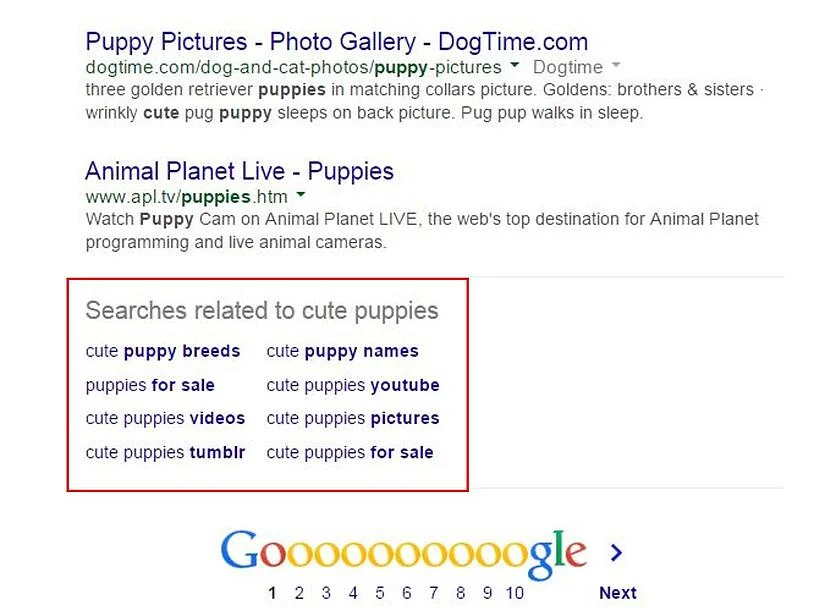What Is Keyword Research?
Keyword research is the most common way of finding and examining search terms that individuals go into search engines fully intent on utilizing that information for a particular reason, regularly for search engine optimization (SEO) or general marketing. Keyword research can uncover questions to focus on, the prominence of propositions inquiries, their positioning trouble, and more.
Why Is Keyword Research Important?
Keyword research gives important understanding into the questions that your target audience is really looking on Google. The understanding that you can get into these real inquiry terms can assist with illuminating substance technique just as your bigger advertising procedure. However, keyword themselves may not be as critical to SEO as you might suspect.
More and more, we hear how much Keyword Research for SEO has developed over the most recent 10 years, and how immaterial keywords themselves have become to our capacity to rank well for the pursuits individuals make each day.
What’s more, somewhat, this is valid; utilizing keywords that precisely match an individual’s search is presently not the main ranking variable according to a SEO professional. Maybe, it’s the expectation behind that keywords, and regardless of whether a piece of content addresses for that goal (we’ll talk more with regards to plan in one moment).
In any case, that doesn’t mean keyword research is an obsolete interaction. Allow me to clarify:
Keyword research lets you know what topics people care about and, accepting you utilize the right SEO tool, how famous those topics really are among your audience. The usable term here is topics – by exploring keywords that are getting a high volume of searches each month, you can recognize and sort your substance into topics that you need to make content on. Then, at that point, you can utilize these topics to direct which keywords you search for and target.
By exploring keywords for their popularity, search volume, and general expectation, you can handle the inquiries that the many people in your audience need replies to.
Step by Step Instructions to Research Keywords for Your SEO Strategy
I will spread out a keyword research process you can follow to assist you with thinking list of terms you ought to target. That way, you’ll have the option to build up and execute a solid keyword strategy that assists you with getting found for the search terms you really care about.
Stage 1: Make a list of significant, relevant topics based on what you think about your business.
To start off this process, think about the topics you need to rank for as far as generic containers. You’ll come up around 5-10 topic buckets you believe are significant to your business, and afterward you’ll utilize those topic buckets to assist accompany increasing for certain particular keywords later all the while.
In case you’re a regular blogger, these are likely the topics you blog about most regularly. Or then again maybe they’re the topics that surface the most in sales conversations. Put yourself in the shoes of your buyer personas – what type of topics would your target audience search that you’d need your business to get found for? In case you were an organization like EProbix, for instance – selling marketing software (which ends up having some marvelous SEO tools… be that as it may, I diverge), you may have general topic buckets like:
- “inbound marketing” (21K)
- “blogging” (19K)
- “email marketing” (30K)
- “lead generation” (17K)
- “SEO” (214K)
- “social media marketing” (71K)
- “marketing analytics” (6.2K)
- “marketing automation” (8.5K)
See those numbers in brackets to one side of each keyword? That is their month to month search volume. This information permits you to check how significant these topics are to your audience, and the number of various sub- topics you may have to make content on to be fruitful with that keyword. To more deeply study these sub- topics, we move onto step 2 …
Stage 2: Fill in those topic buckets with keywords.
Since you have a couple of topic buckets you need to focus on, it’s an ideal opportunity to recognize a few keywords that fall into those buckets. These are keywords phrases you believe are essential to rank for in the SERPs (search engine results pages) in light of the fact that your target customer is presumably conducting searches for those particular terms.
For example, if I took that last topic bucket for an inbound marketing software – ” marketing automation” – I’d conceptualize some keyword phrases that I figure people would type in identified with that topic. Those might include:
- marketing automation tools
- how to use marketing automation software
- what is marketing automation?
- how to tell if I need marketing automation software
- lead nurturing
- email marketing automation
- top automation tools
And so on and so on. The point of this step isn’t to come up with your final list of keyword phrases. You simply need to wind up with a mind dump of expressions you figure potential customers may use to look for content identified with that specific topic bucket. We’ll narrow the lists down later simultaneously so you don’t have something excessively inconvenient.
Although more and more keywords are getting encrypted by Google each day, one more brilliant way to come up with keyword thoughts is to sort out which keywords your website is now getting found for. To do this, you’ll need website analytics software like Google Analytics or EProbix Sources report. Drill down into your website’s traffic sources, and filter through your organic search traffic bucket to recognize the keywords people are utilizing to show up at your site.
Repeat this activity for as numerous topic buckets as you have. Furthermore, recall, in case you’re experiencing difficulty thinking of important search terms, you can generally head on over to your customer-facing colleagues — the people who are in Sales or Service — and ask them what kinds of terms their prospects and customers use, or normal inquiries they have. Those are frequently extraordinary beginning stages for keyword research.
Stage 3: Understand How Intent Affects Keyword Research and Analyze Accordingly.
Like I said in the past segment, user intent is presently one of the most urgent factors in your capacity to rank well on search engines like Google. Today, it’s more significant that your web page addresses the issue a searcher intended to address than just conveys the keyword the searcher used. So, how does this influence the keyword research you do?
It’s easy to take keywords for face value, and unfortunately, keywords can have a wide range of meanings underneath the surface. Since the goal behind a hunt is so important to your ranking potential, you should be extra-cautious how you interpret the keywords you target.
Suppose, for instance, you’re exploring the keyword “how to start a blog” for an article you need to make. “Blog” can mean a blog post or the blog website itself, and what a searcher’s intent is behind that watchword will impact the direction of your article. Does the searcher need to figure out how to begin a individual blog post? Or on the other hand would they like to know how to actually launch a website domain for the purposes of blogging? If your content strategy is just focusing on people inspired by the last option, you’ll need to ensure the keyword’s intent before focusing on it.
To check what a user’s expectation is in a watchword, it’s a smart thought to just enter this keyword into a search engine yourself, and see what kinds of results come up. Ensure the sort of content Google is firmly identified with what you’d expect to make for the keyword.
Stage 4: Research related search terms.
This is an inventive step you might have effectively considered while doing keyword research. In case not, it’s an extraordinary way of finishing up those rundowns.
In case you’re battling to consider more keywords people may be looking with regards to a particular topic, take a look at the related search terms that seem when you plug in a keyword into Google. At the point when you type in your phrase and look to the bottom of Google’s results, you’ll notice a few ideas for searches related to your original information. These keywords can start thoughts for different keywords you might need to think about.
Want a bonus? Type in some of those related search terms and look at their related search terms.
Stage 5: Use keyword research tools for your potential benefit.
Keyword research and SEO tools, for example, Ahrefs, SEMrush, and Ubersuggest can assist you with more keyword ideas based on definite match keywords and expression match keywords dependent on the ideas you’ve created so far. This activity may give you choices that you probably won’t have thought of.
Conclusion
Ready to implement these important skills? Let’s use these list of useful tips for selecting the best keywords to rank high on search engines and drive quality traffic to your blog posts.
If you have any question on How to Find and Choose Keywords, you contact EProbix: a leading web development company in India & Australia providing SEO and Digital Marketing services to clients across the world.


